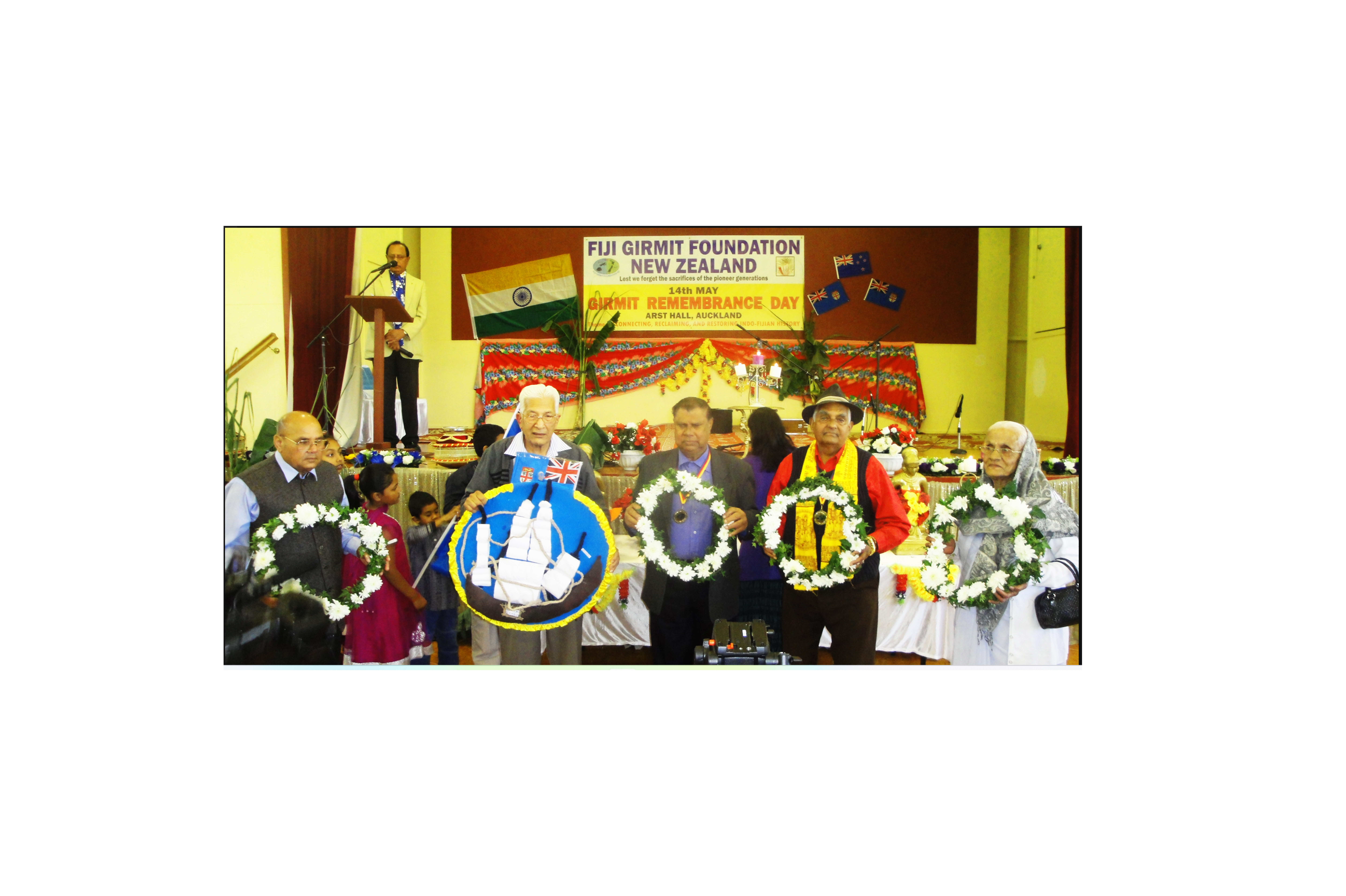Fijians of Indian descent in New Zealand comprise a huge number, but nobody knows how many, as we have never been recorded separately. We have either been counted as INDIANS or have eclipsed in ‘ASIAN” or “SOUTH ASIAN” category or some other others. No efforts have been made to identify us separately.
Some claim that if recorded properly in NZ, we may even surpass Tongans and Niuean, and come only second to Samoans as the largest number of people of the Pacific in New Zealand. One estimate put our numbers at over 100,000.
At the moment there is no consistent term that refers to Fijians of Indian descent-some call us Indo-Fijians, some Fiji-Indians, and others Fijian Indians. Whatever the most accepted terminology, our first issue is to be identified separately in New Zealand Census, where we comprise more than most other Pacific Islanders as Pacifica people, not Asians.
That is why in 2018 NZ Census, Fiji Indians were urged to record their ethnicity as “Other” and record it as “Fiji Indian”, so that we are correctly recorded as who we are. At the moment, we seem to be a lost race. We have to first identify as “FIJI INDIANS” and then decide on the appropriate terminology for us.
FIJI GIRMIT FOUNDATION NZ is having discussions with NZ Government to give us our identity and amend forms to show a box as FIJI INDIANS.
Rajendra Prasad, author of Tears in Paradise, and a Founding Trustee of Fiji Girmit Foundation NZ was the keynote speaker in 2023 Girmit Remembrance Day in Auckland.
Culturally he likened Fiji Indians to orphans because every culture had its history but theirs was missing, and he challenged Fiji Indians to reclaim and restore their stolen history. He said the event was to commemorate the sufferings and sacrifices of the Girmitiyas, the event also called for celebration of their achievements and appreciate the rich bequest they left behind, which continued to nourish and enrich successive generations.
He urged Fiji Indians to assert themselves and claim their rightful place among the cultures that gave diversity to New Zealand and lamented that that it was harsh for the New Zealand Government to push Fiji Indians in the Asian block, cruelly defying their historical and inseparable links to Fiji.
Rajendra Prasad added: “We do not crave for favour or mercy but seek truth, justice and acceptance that our Fiji Indian culture is rooted in Fiji, we are Fiji’s children, Fiji is part of the Pacific, and we are part of the Pacific peoples.” Whether this is done or not by the Government, we in the meantime need to register our ETHNICITY, RACE or ANCESTRY, as OTHERS, and record it as FIJI INDIANS in all formal documents.
Pacific Islanders with lower numbers get special recognition and government assistance programmes, while Fiji Indians surpassing island numbers get lost in Indian and Asian identities and miss out on those benefits.
So, Fiji Indians with a distinct culture and language became lost and drifted without any recognition, opportunities or benefits that were earmarked for us as Fijians. Special programmes reserved for Fijians ignored us.
Fiji Indians are a distinct breed of people – they are not Indians
Over 14 decades ago, the first Indians from mostly Northern India were shipped to Fiji as Indentured Labourers. Between the next 37 years, from 1879 to 1916, some 60,500 Girmitiyas, or indentured labourers were brought to Fiji by 87 ship voyages. Of these, some 25,000 were successful to move back to India after indenture, while the remainder stayed back. And we are their descendants.
Leonidas was the first ship to hit Fiji with Indentured Labourers. As India was a British Colony that time, the British and the Australians found India a fertile ground for cheap labour for cane plantations in Fiji. India washed its hands on the suffering and plight of people in Fiji and paid only token attention of cries from Fiji. Even when Indian Prime Minister Indira Gandhi visited Fiji in 1980s, she reminded Fiji Indians, that they were no longer Indians, but belonged to Fiji. And unfortunately, Indians in NZ also think the same and it seems they do not belong anywhere.
Through vision of Girmitiyas, we stood tall. This is because they vowed never again to allow a situation where their children would suffer like them. Hence, they concentrated on education and future well-being of their children. Such vision, suffering and sacrifices they made for their future generations are enumerated in many historical writings.
Fiji Indians made a fresh start in Fiji. And so began a distinct culture, and religious traits. As they stayed on cane farms spread sparsely, they formed Mandalis or religious groups, and thus began distinct religion, local singing and cultural songs, which were rooted in India but changed and adopted with local flavour. The seed is from India, but the plant grew in Fijian and Pacific soil-that is who FIJI INDIANS are.
A distinct Fiji Hindi language also transformed with a mixture of Hindi and other languages and local dialects of Girmitiyas. Fiji Hindi initially started as Lingua franca, a bridging language, but later took root as a language of Fiji Indians. This is spoken by all the descendants of Girmitiyas.
Hence time is ripe for Fiji Indians to be counted in New Zealand as a distinct race of people. All Fijians of Indian descent in New Zealand are requested to be counted and have pride in their Girmit legacy and heritage -and counted properly as who they really are – FIJI INDIANS.
– by Thakur Ranjit Singh
[About the Author: Thakur Ranjit Singh is a founding Trustee of Fiji Girmit Foundation, is a journalist, a media commentator and blogger at FIJI PUNDIT. He has a passion for his forebears, Girmit Legacy, and Heritage, and has written various articles on them in the past. The view expressed are his and not necessarily of this publication.
E-mail: thakurjifj@gmail.com]


